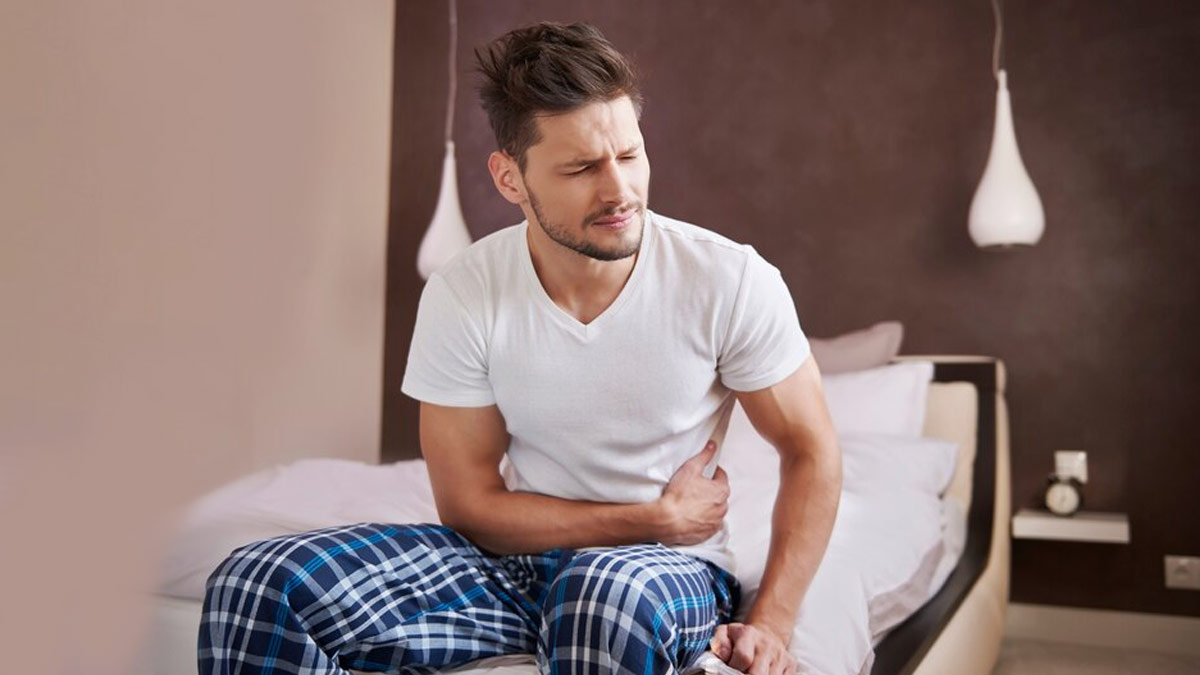
Constipation is a common digestive problem that affects an estimated 16% of the global population, with a prevalence of 33.5% in people aged between 60 and 110 years old, according to research published in the Wiener Klinische Wochenschrift.
Table of Content:-
In most cases, constipation is accompanied by bloating due to faecal materials moving slowly through the digestive tract, explains Dr Amit Modi, Paediatrics, Prof. Head, Noida International Institute of Medical Sciences and Hospital (NIIMS), NIU. Speaking with the OnlyMyHealth team, Dr Modi explains the causes of persistent or recurrent constipation and bloating and shares tips to relieve the same.
Also Read: 5 Effective Ways To Get Rid Of Constipation
What Constipation Bloating Feels Like

Dr Modi describes constipation bloating as stomach discomfort and distension, which is accompanied by delayed colonic transit (food motility).
According to him, it causes a sensation of abdominal tightness or distension due to irregular bowel movement, resulting in dried and compacted stool production.
“This issue should be taken seriously, as it might affect gastrointestinal motility and general health,” he warns. Gastrointestinal motility refers to the movement of food from the mouth through the throat, oesophagus, stomach, small and large intestines, and out of the body.
Common Causes Of Persistent Constipation And Bloating
Many factors can lead to persistent constipation and bloating. In certain cases, people might experience short-term relief and experience recurrent symptoms. Common causes include:
- Underlying gastrointestinal diseases, such as Irritable Bowel Syndrome (IBS)
- Hormone imbalance
- Food sensitivities
According to a study published in the World Journal of Gastroenterology, constipation affects about 34% of people with IBS.
“Consultation with a healthcare practitioner is recommended if there are specific red flags indicating a more serious aetiology,” says Dr Modi, adding that these indicators include abrupt changes in bowel patterns, prolonged constipation lasting more than three weeks, severe discomfort during defecation, hematochezia, or unexplained weight loss.
Also Read: Feeling Bloated? Here Are 7 Ways How You Can Deal With It
How To Relieve Constipation Bloating

To relieve constipation and related bloating, Dr Modi recommends making dietary changes, which include eating foods high in soluble and insoluble fibre, ranging from fruits, vegetables, whole grains, and legumes.
“Fibre is essential for faecal bulk production and colonic transit, reducing the risk of faecal impaction,” he says.
“Maintaining proper hydration levels through frequent water intake is critical. Dehydration can worsen constipation by encouraging faecal hardness,” he adds further.
Additionally, regular physical exercise and supplementary methods, such as the use of over-the-counter medications like isabgol, which contains psyllium husk, a soluble fibre recognised for its laxative properties, are also recommended.
Home remedies for constipation-induced bloating include the following:
- Starting the day with warm lemon water
- Drinking herbal teas like peppermint or ginger
- Clockwise abdominal massages
Conclusion
Constipation and bloating are common gastrointestinal issues that can impact a person's quality of life. By incorporating simple lifestyle changes such as increasing fibre intake, staying hydrated, and engaging in regular physical activity, individuals can often find relief from these symptoms. Additionally, over-the-counter remedies and seeking medical advice for underlying conditions can also provide effective relief. Speak with a doctor to understand the best course of action.
Also watch this video
How we keep this article up to date:
We work with experts and keep a close eye on the latest in health and wellness. Whenever there is a new research or helpful information, we update our articles with accurate and useful advice.
Current Version